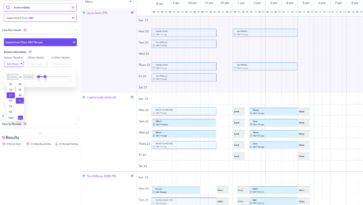Public health officials have highlighted Social Determinants of Health (SDOH) as a prominent focus of the Healthy People 2030 initiative. Sidebench has taken a strong interest in dedicating our resources to developing tools and resources that address SDOH and improve healthcare access.
One of our more successful digital enablement efforts comes on the heels of our partnership with Children’s Hospital Los Angeles (CHLA). CHLA serves an extremely diverse patient population, with approximately 29.4% of patients on Medi-Cal and over 65% of the patients identifying as Latino. Together Sidebench and CHLA developed and launched the platform Baby Steps LA, which provides infant families and new mothers with at-home support and educational resources after discharge from the neonatal intensive care unit (NICU).
What is SDOH?
The major pillars of SDOH include access to and quality of healthcare and education, a person’s neighborhood and physical environment, the relationships of the social and community context, and economic stability. They can have positive or negative effects on our well-being by impacting our access to healthcare, food, a healthy living environment, and employment, amongst many other factors. The Baby Steps LA mobile app was developed to provide parents and caregivers with accessible tools for transition-to-home care and a centralized platform for increasing health literacy in both English and Spanish.
Challenges of Care Coordination After NICU
After discharge, parents of NICU babies frequently experience high stress, emotional reactions, and financial burden. Discharge plans can be quite complex. Infants might require heart or breathing monitors, numerous medications, supplemental oxygen at home, and/or additional physician visits. The toll on caregivers is high with NICU mothers facing higher rates of depression than mothers of term infants. Due to disruption in parent-child bonding, parental distress early in a child’s life can have long-term negative effects on a child’s behavior, regardless of socioeconomic status.
Following hospital discharge, preterm infants face higher rates of morbidity, emergency department visits, and rehospitalization with even higher rates for those with Medicaid. The financial burden is significant, estimated to be in excess of $41 million for preterm infants requiring rehospitalization annually in just California. In-person transition-to-home programs have been shown to cut readmissions and contribute to more than $4,000 per infant per quarter in Medicaid savings according to a study in the Journal of Pediatrics. Although Baby Steps LA is a virtual platform, we expect there to be similar benefits as studies have shown that videos and websites are good methods for enhancing parents’ knowledge, infant sleep, decreasing stress, and postnatal depression in the transition from NICU to home.
Bringing a premature infant home requires a high level of health literacy to understand discharge instructions. Researchers estimate that one-third to one-half of the US population has limited health literacy. People of lower socioeconomic status, ethnic minorities, limited English proficiency, and limited education display disproportionately lower rates of health literacy. Medicaid enrollees with low health literacy incurred almost $8,000 more in annual healthcare costs compared to health literate enrollees. The app was developed in hopes that it would improve health equity for underserved populations in the CHLA community.
How ‘Baby Steps LA’ Reduces Caregiver Burden
Sidebench was tasked with aiding and assisting NICU families through the challenging transition back home. While leveraging the foundation of patient-centered design, we focused heavily on the burden to care that new mothers and caregivers experience after discharge from the NICU.
Our team started with 3 major focus areas: (1) parental stress as a result of a lack of information, (2) individualized health literacy, and of course, (3) overall support being provided by clinicians. To achieve our primary goal of promoting greater autonomy and competence once at home, we designed, developed, and implemented the following:
- A library that contains a variety of trusted content that is curated by CHLA, including articles and videos, as well as links to verified sites. If a user needs help setting up medical equipment or understanding their baby’s diagnosis, they can read or watch about it on the platform.
- Resources that support SDOH, such as transportation, housing, and feeding
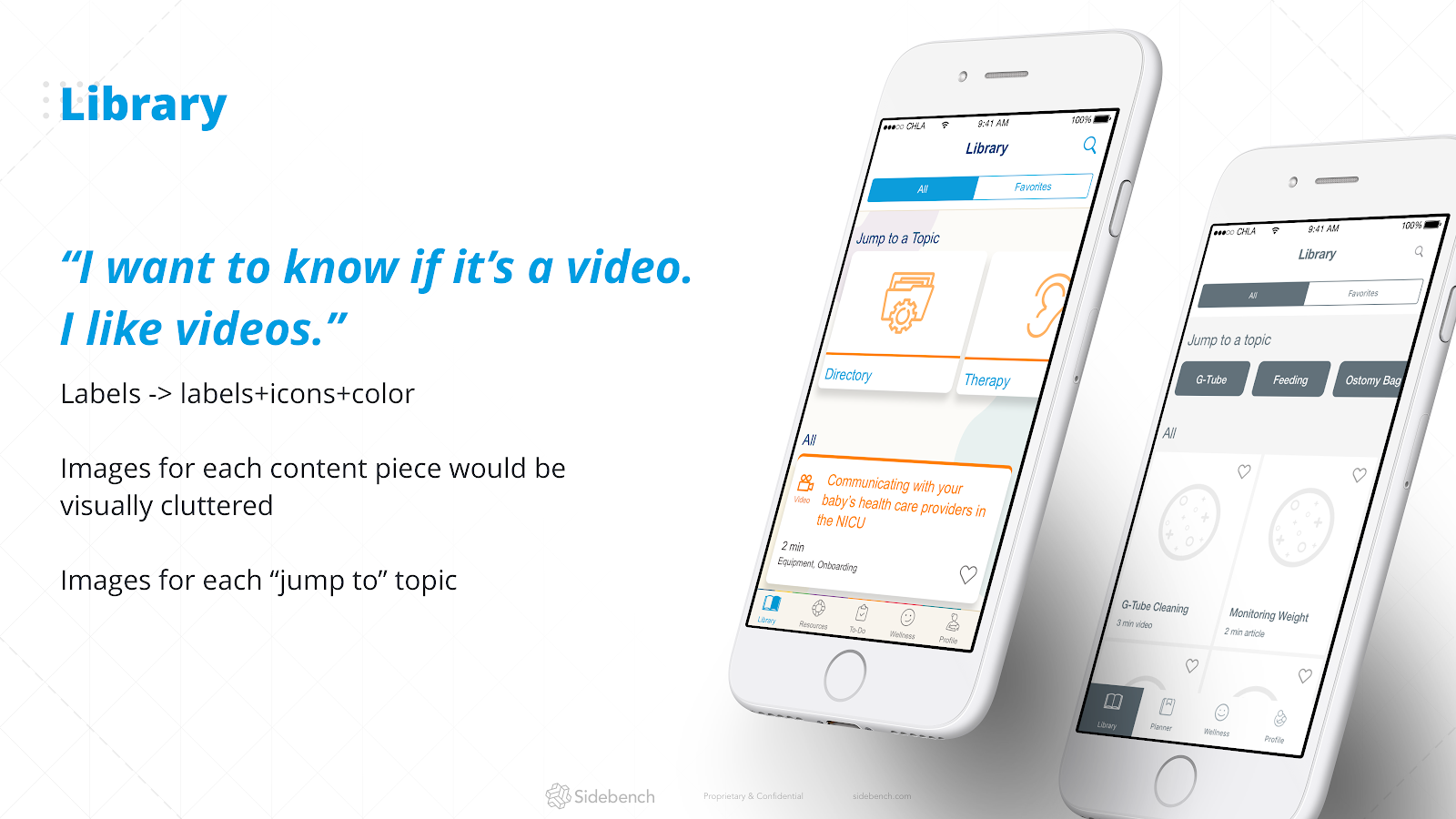
- A To-Do section, where CHLA curated checklists include detailed tasks to help families complete care provisions for the mom and the infant after discharge.
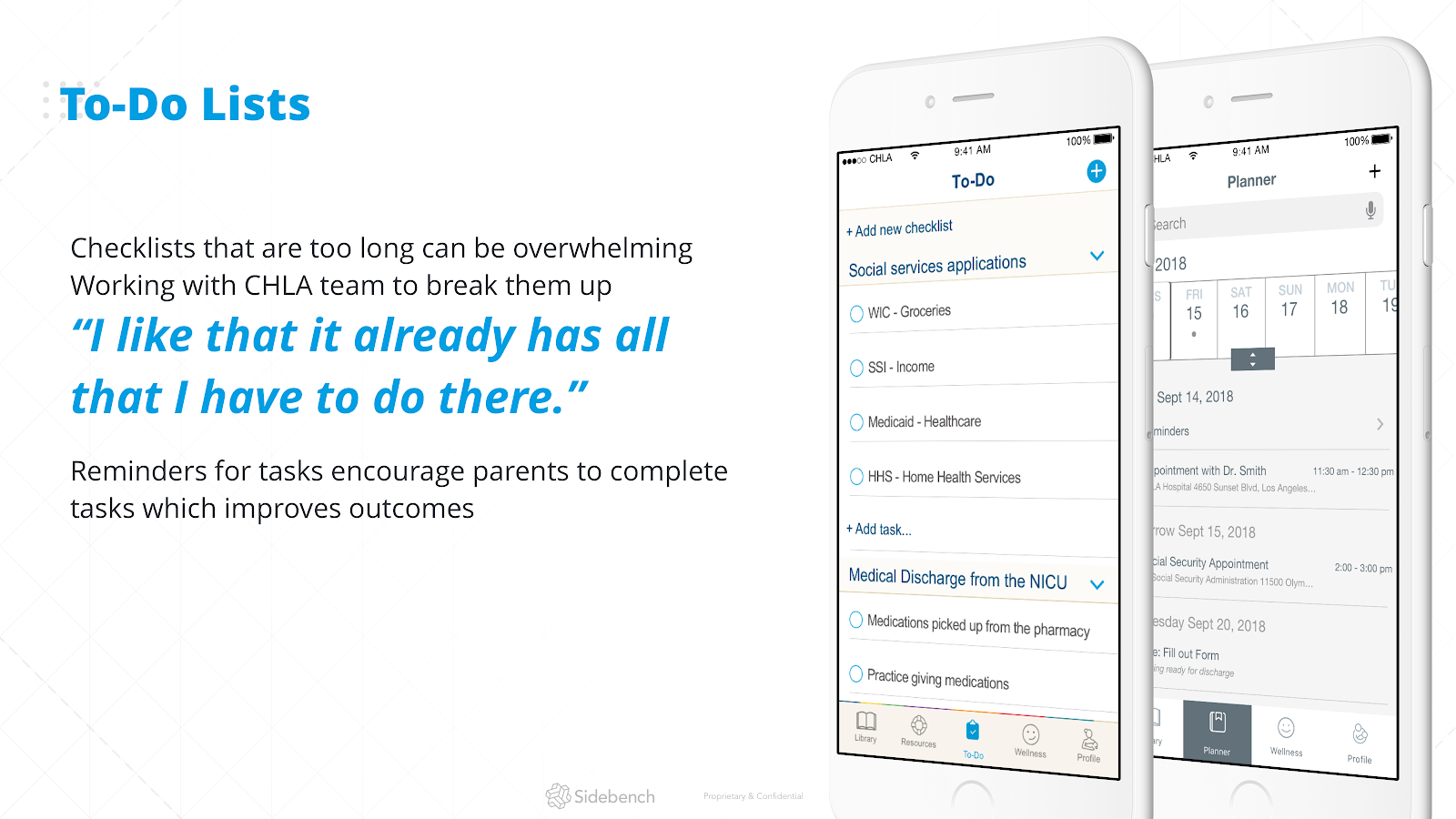
- A Wellness tool where parents can keep track of their mood and mental health through the use of a digital journal, parent support groups, as well as telehealth therapy.
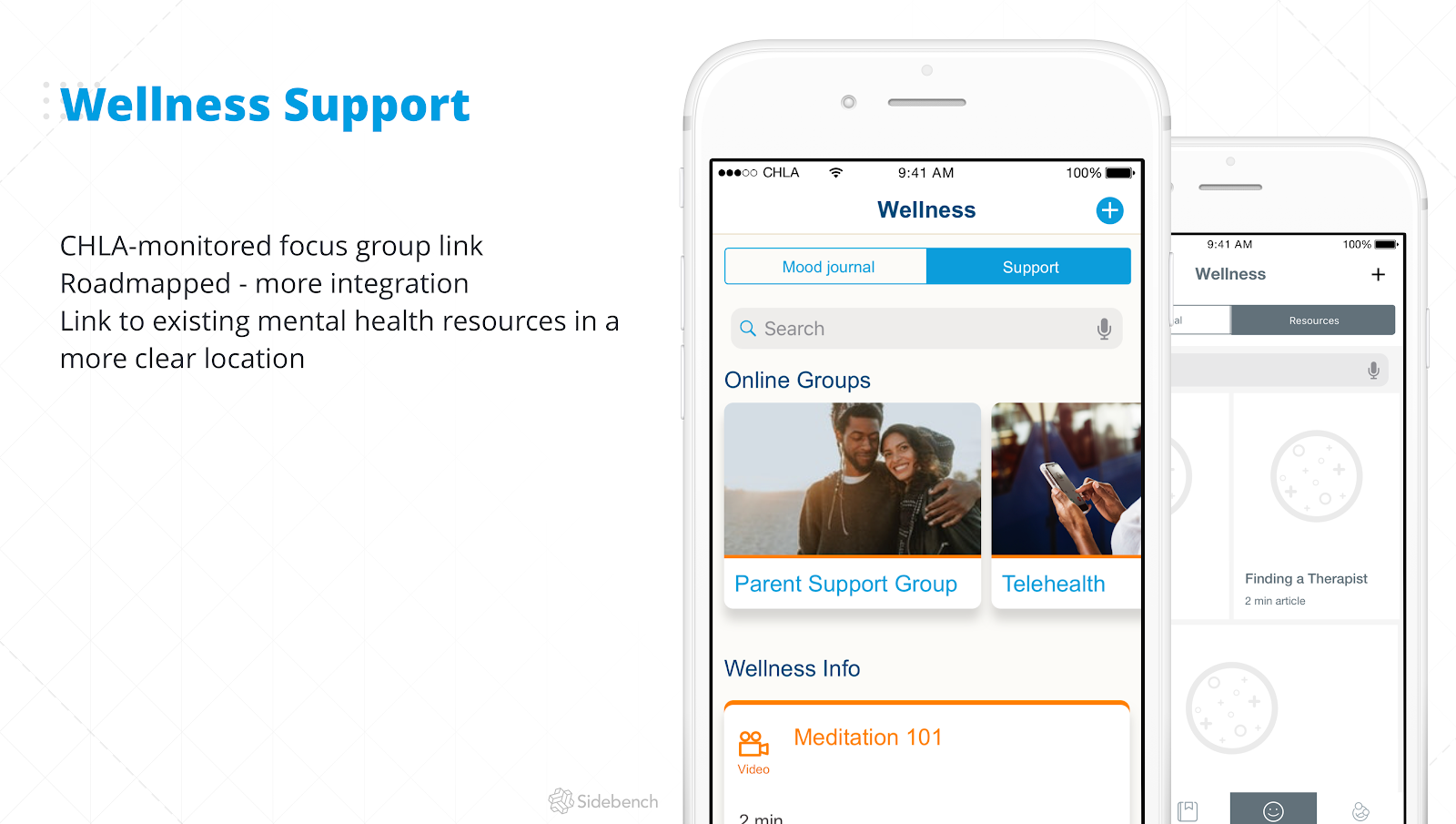
- All content is highly personalized by inputting individualized medical information regarding the infant’s diagnoses, doctors, and prescribed medication which creates individualized content.
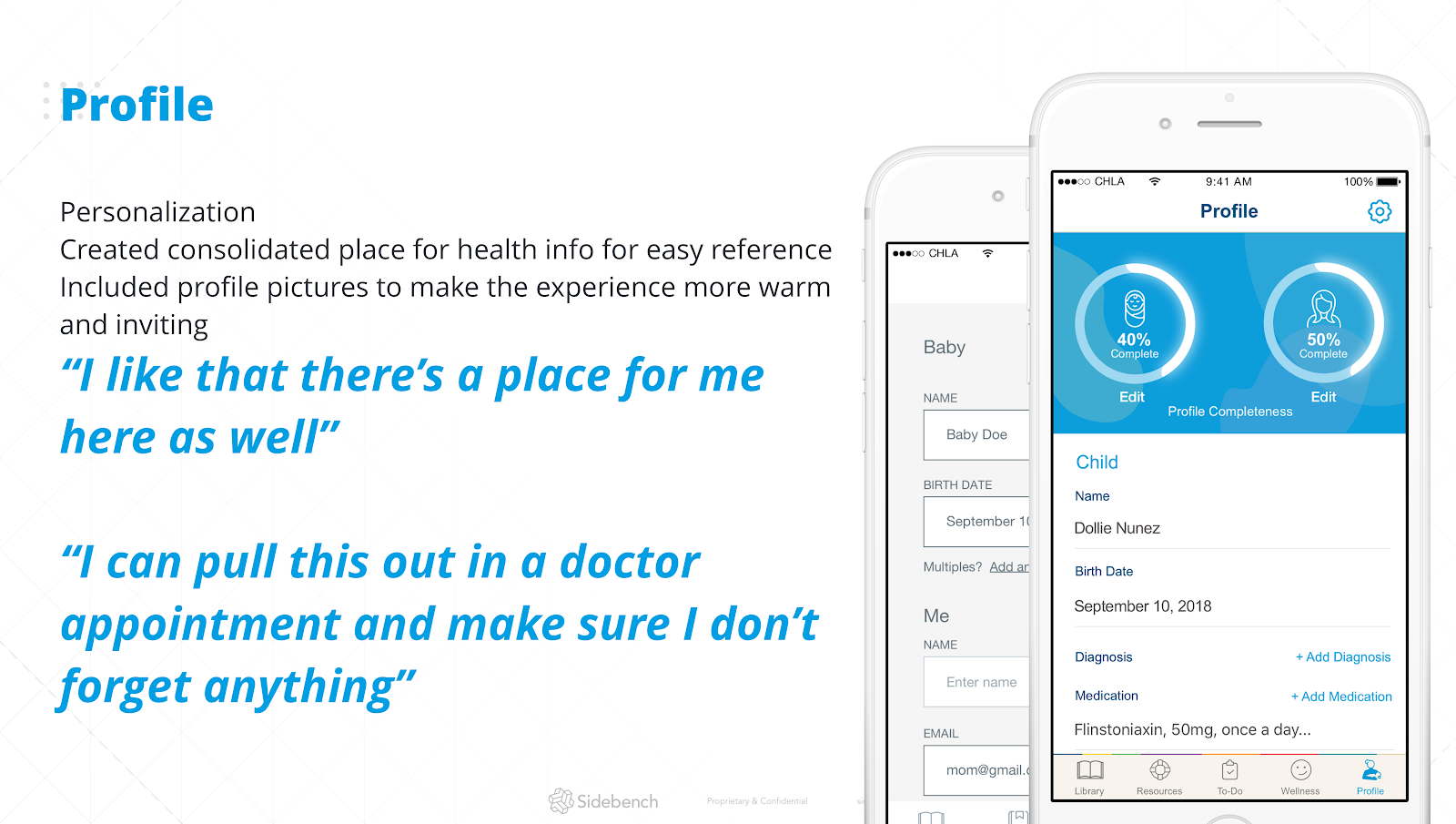
At Sidebench we’re committed to dedicating our product development methodologies and experience to improving healthcare outcomes through patient-centered platforms similar to our partnership with CHLA. For Baby Steps LA, CHLA and Sidebench were awarded the American Hospital Association’s 2019 Innovation Challenge, Fast Company’s Best Mobile Apps Winner, and w3 Awards’ Mobile App Gold Winner. Our technology-driven platform helped CHLA expand post-visit care, improve health outcomes for both parents and infants, and increase health equity. We plan on continuing to address the impacts of SDOH on quality of life through our partnerships with those in the renewable energy sectors.



